Do you not feel the need to form a close bond with others? Do others tell you that you appear aloof and are a loner? Are you a person who does not like to show emotions? Do you like staying ignorant of things going on around you? If your answer to the above questions is yes, you might be suffering from schizoid personality disorder. A schizoid personality disorder is a type of mental health condition. It is marked by a pattern of general Disinterest and detachment from others.
People who suffer from this disorder don’t like to form social relationships because they don’t find interest in the same. They also display a limited emotional range when interacting with others. In this article, I will be discussing schizoid personality disorder, what it entails, the signs and symptoms, diagnosis, and finally, the treatment modalities.
Do you want to know more about the different forms of personality disorders that exist? If yes, please subscribe to the Guilt Free Mind. Your subscription will allow me to notify you of the release of the new blog post. This way you will say updated with all the latest tips and tricks from the mental health world. If you like watching videos, please subscribe to the YouTube channel of Guilt Free Mind. I release one video every week. Do not forget to ring the notification bell Otherwise, YouTube will not be able to notify you about the release of the new videos.
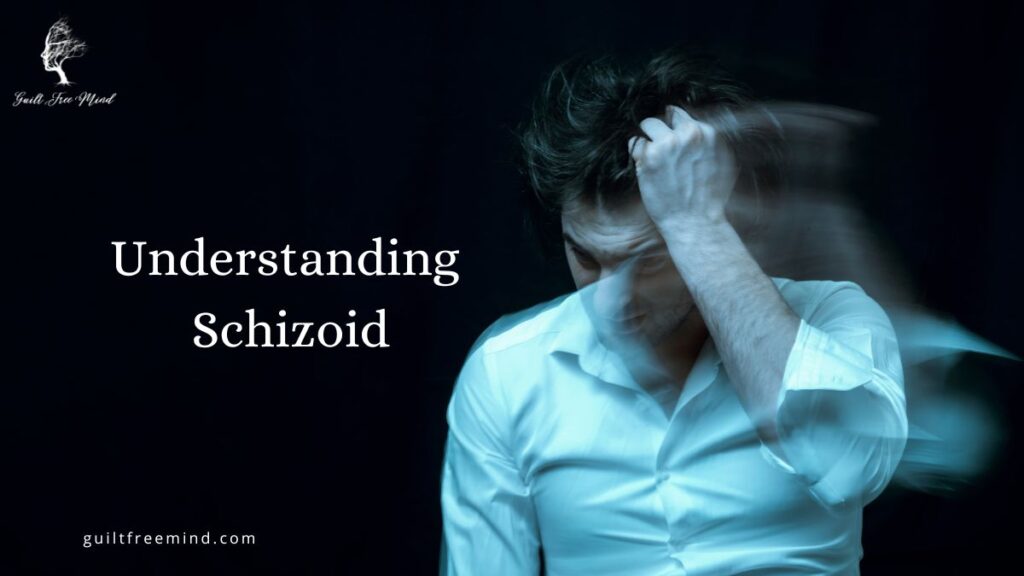
Table of Contents
Understanding Schizoid personality disorder
The Schizoid personality disorder falls under the cluster A type personality disorders as per the DSM 5 manual. This specific cluster of personality disorders involves mental health conditions that cause the person to behave or think in an unusual and extreme manner. Personality disorders are generally long-term behavioural problems that are difficult to understand, and are extremely inflexible. They can lead to significant disruption of the person’s social life and skills.
Prefer isolation
Those who have schizoid personality disorder tend to prefer being in isolation. They are seen as being loner or dismissive. They also do not display the ability to form or want close and personal relations. Since they don’t show emotions, it appears as if they don’t care about what’s going on in their vicinity or environment.
Limited emotional expression
Those suffering from schizoid personality disorder have a limited emotional expression. Another problem with this disorder is that they also do not realize that there is something wrong with them. Thus, they ever feel the need to visit a mental health practitioner. Since this disorder comes into effect fairly early in adulthood, people find ways to justify their behaviour. The causes behind schizoid personality disorder are generally social and emotional detachments. However, there are other causes that I will discuss in the following sections.
Daily normal function
People with this type of personality disorder can function normally in their day-to-day life. However, they do not like developing meaningful relationships or having friends who are close. Such people prefer to be alone. There is a chance that they may exhibit excessive daydreaming behaviour. They also form high level of attachment with animals. Such people are very good at solitary jobs like being night security, watchmen Etcetera.
The prevalence of this personality disorder has been observed to be between 3.124.9% of the entire population. The frequency among men and women is equal.
Classification In DSM 5
DSM 5 is the manual that classifies all forms of personality disorder. In this manual, schizoid personality disorder has been put under cluster A of personality disorders. A personality disorder is generally classified as eccentric and odd. The two other clustering personality disorders are paranoid personality disorder and schizotypal personality disorder. The hallmarks of the disease that make it to this cluster are withdrawal and social awkwardness
Before I get into discussing the causes behind the occurrence of schizoid personality disorder, we need to understand the formation of personality.
Personality formation
Personality is the result of many factors fused together. The primary factors are your personal emotions, thoughts and behavioural process. However, how you grow up, how your childhood was and how you perceive the world has a huge impact on how your personality turns out eventually. Personality starts to develop during the early childhood years of one’s life. Over time, the different stimulation that the child acquires through the environment, school, environment, friends, society et cetera change the personality and helps the child a tad better.
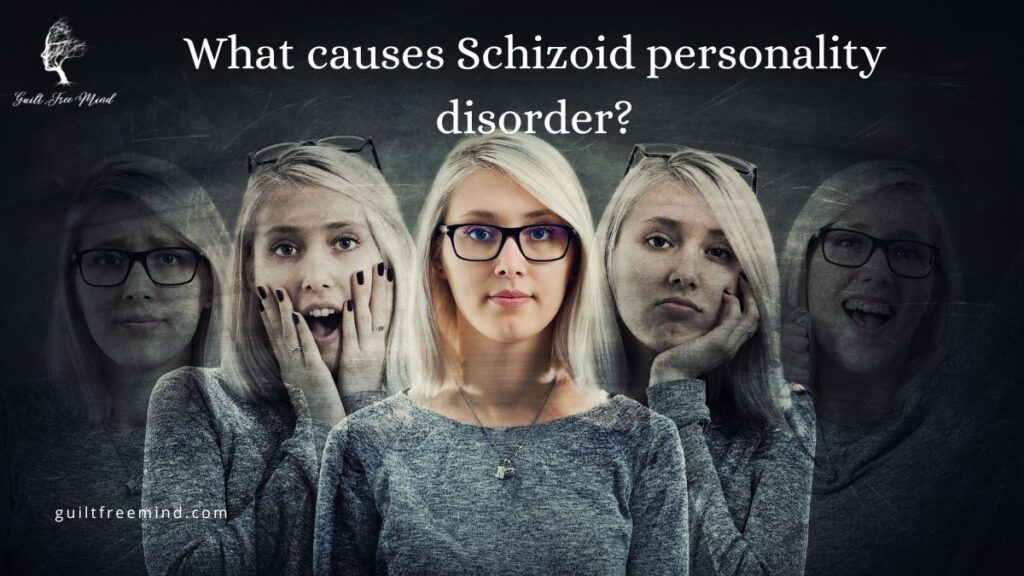
In the case of normal development of a child, the child will learn how to interpret the different social cues and the right way to respond to each of them. So far, scientists have not been able to pinpoint the development of schizoid personality disorder. However, there is an indication that this could be the result of genetic and environmental factors coming together. These factors can have a massive impact on the child’s perception of the world and how his personality develops. They can also be the causative mechanism behind the development of schizoid personality disorder.
Personality disorders.
City is a set behaviour that has been accepted by the society. When people start to exhibit behaviour that does not set into the societal conforms, these personalities and indicated as personality disorders period. Those with personality disorders are unable to lead a fulfilling life and find it difficult to connect to others.
Understanding the causes behind the occurrence of schizoid personality disorder.
As I mentioned before, in the case of a schizoid personality disorder, the causes have not been printed out in black-and-white. However, the biological factors, nurturing style and circumstances that the person faces can act as huge contributors to the formation of this type of personality disorder. Here are a few reasons that can act as causes behind this form of personality disorder.
Presence of child abuse.
Research has shown that those with schizoid personality disorder have either experienced childhood abuse or neglect. This misbehaviour may include the following:
- Physical abuse.
- Verbal abuse.
- Psychological manipulation.
- Sexual abuse.
- Harsh forms of punishment.
- Absence of proper parents and supervision.
- Absence of any form of guidance from the parents
- Having a neglectful, responsive or cold parent
How do these factors cause schizoid personality disorder?
If a child has been abused, during the formative years, the child may learn to associate social interaction with shame, rejection and bullying period. This causes the child to shut himself out against society because the child does not expect anyone to understand him or be nice to him. In the case of those who have suffered sexual abuse during their childhood, they may find it very difficult to feel genuine emotions, and avoid closeness with people due to their traumatic past.
Prenatal risk factors
Congenital or prenatal factors also contribute to this personality disorder. Prenatal risk factors are congenital factors present from the birth of the child. Some of the continental factors that have been identified are:
- Not receiving enough level of calories, while the child was growing in the mother’s room.
- Low birth rate.
- Premature birth of the child.
- Birth before 37 weeks of age.
Biological risk factors behind schizoid personality disorder
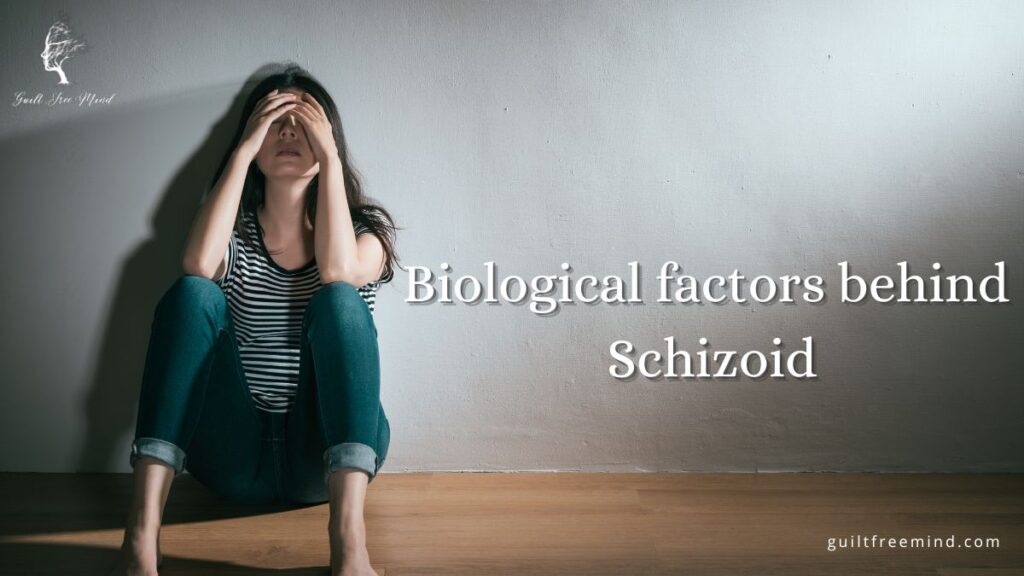
There are certain biological risk factors that schizoid personality disorder has been linked to. Some of the studies have shown a link between the production of serotonin and schizoid personality disorder. It has been shown that people with this type of personality disorder have a lower serotonin release. When selective serotonin reuptake inhibitors (SSRIs) were administered, the level of serotonin increased and it led to a reduction in some of the personality disorder symptoms. SSRIs eyes are basically anti-depressants which help boost serotonin levels in the subject.
Another study has shown that the gender hormones like estrogen and testosterone also have a role in deciding the personality of the person. The balance between these two hormones affects the display of personality disorder. Finally, those who have parents or relatives, displaying signs and symptoms of schizotypal personality disorder, schizophrenia or schizoid personality disorder, have a higher chance of developing this specific form of personality disorder
Brain injury
If a person has had a brain injury around the frontal lobe, parietal lobe or limbic system, it can lead to the development of schizoid personality disorder. This is specifically the case when the brain injury was around the regions that help a person process physical sensations and emotions.
Cultural factors
Sometimes the root of the personality disorder lies in the cultural factors that someone has grown up in. It has been observed that cultures that put more value on self-reliance and individuality, show higher rates of those having schizoid personality disorder. However, if a person belongs to a culture that put more emphasis on togetherness and community activities, expressing oneself as being extremely self-centered can be taken as a sign of schizoid personality disorder.
Genetic factors
In certain instances, research has also shown that there may be a genetic connection between schizoid personality disorder and schizophrenia.
There have also been similarities seen with the autism spectrum disorder. On this basis, researchers have reached the conclusion that there is a possibility of a link between autism spectrum disorder and schizoid personality disorder in terms of genetics.
Environmental factors
This research also suggests that kids have a higher chance of developing such personality disorder if they are in an environment that does not provide them enough emotional nurture. If the child has grown up in an environment that is neglectful, cold and very detached during the childhood phases, there is a higher chance that such a child may develop schizoid personality disorder later on in life.
Signs and symptoms of schizoid personality disorder.
Schizoid personality disorder has been classified under the personality disorder section in the DSM5. According to the DSM-V manual, a person who displays a skill will show the following symptoms

- Does not enjoy or desire any close relationship with anyone.
- Avoid any kind of social activities that involve the person being in contact with other people.
- Has no to little interest in having sexual experiences with another human being.
- Does not like to have close relationships with anyone except for immediate family members.
- Prefers to engage in solitary activities.
- Don’t care about criticism or praise from others.
- Comes off as a very cold person to others
- Has trouble expressing himself or herself.
- Their mood almost always stays stagnant. You never see them happy, excited, sad, or frustrated.
- They find it very hard to gain pleasure in any activity.
- If they have no to very little motivation and life goals
Diagnosis of personality disorder.
Since personality is one factor of humans that continues to develop from the time they are a toddler and into adulthood, this is why healthcare providers do not try to diagnose schizoid personality disorder before the person reaches 18 years of age. After 18 years, the personality stabilizes. This is when the diagnosis can be made.
In most cases, any form of personality disorder, including schizoid, can be hard to diagnose. This is because those with personality disorder do not realise that they even have a problem. They feel that their way of thinking, behavioural patterns and way of living their life is the right one. If they go to a mental health practitioner for mental health, that is usually because of associated conditions like depression or anxiety. However, they will never visit a mental health practitioner for the personality disorder diagnosis.
What happens when a person with schizoid personality disorder visits a psychologist?
In case the psychologist suspects that the patient has a case of schizoid personality disorder, they will ask questions that will specifically focus on shedding light on the person’s:
- Relationship history.
- Childhood history
- Reality testing and
- Work history
Since the person who has the disorder may not even realise that they have a personality disorder, the psychologist or psychiatrist may have to work with the person’s, relatives and family members to collect more information about their behavioral history.
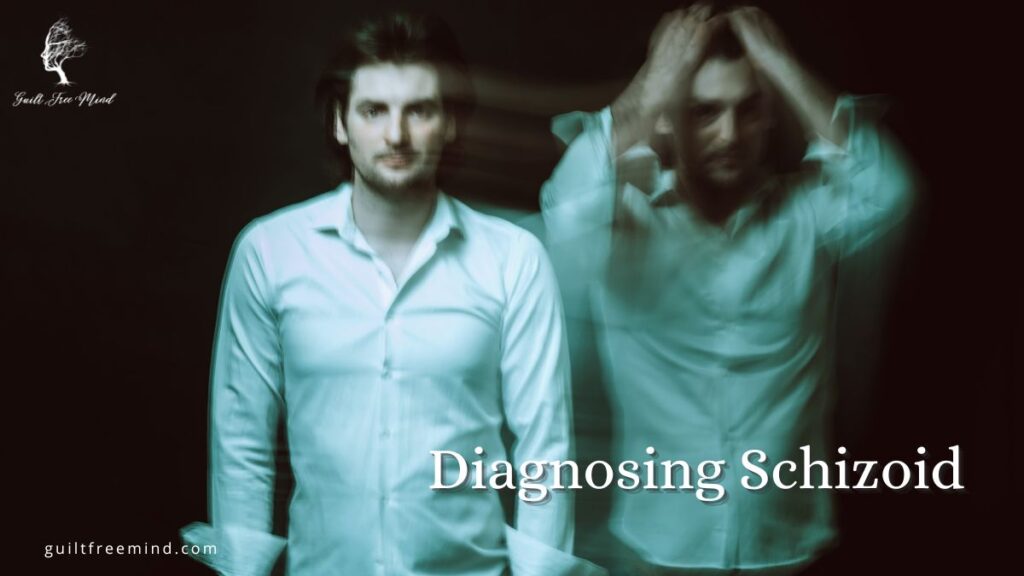
Diagnosis of the disorder is based on the DSM-V manual. After consulting with other family members and relatives, the psychologist will note down the signs and symptoms and tally them with the details provided in the DSM-V to identify if it matches with schizoid personality disorder.
How to identify if you are suffering from schizoid personality disorder
So far, psychology experts do not know a lot about this disease. This primarily happens because the person having the personality disorder does not reach out for support. As I mentioned before, they do not realise that they are not exhibiting behaviour that is not at par with society. However, if you feel that others have described you as loner or a detached, you may want to look through the following symptoms and identify if you have schizoid personlaity.
You prefer to stay away from close relationships.
This happens because the need to feel safe and outweighs the need to share your life with someone. It’s not that you don’t want an intimate relationship. However, being in an intimate relationship will require you to open up to the other person. It also require you to show a certain degree of vulnerability. However, those who suffer from schizoid personality disorder, pay more attention to their own safety, and do not want to get into a relationship, because that involves showing a degree of vulnerability.
You go to school or work place but you do not get close to any of your colleagues or friends. Due to your extremely limited interaction, others classify you as a person who is aloof or shy or has a tremendous level of attitude.
Since you do not prefer being in an actual relationship, you tend to spend a ton of time, thinking and building fantasy castles about a relationship that you want to have in future. However, you don’t land up in an actual relationship because you never approach the person you like.
You look for ways to accidentally meet up with the object of your affection. However, you are too scared to ask them out or look for a real relationship. However, if the person you have a crush on asks you out, that is the only time when your imaginary relationships win. That’s because in this case, it’s both predictable and safe. You agreed to go out with that person, not the other way round.
You prefer solitary past times and activities.
People which schizoid personality disorder are viewed as being extremely independent. They prefer to keep to themselves. Their secrets are their own. They do not like to share their inner thoughts with anyone. If you have schizoid personality, chances are that you are a person who:
- Favours hobbies that involve only one person like reading, exercising alone, or playing video games
- Prefers to save most of your money so that you never have to depend on anyone. Your savings are enough to take care of you.
- Prefer gravitating towards those jobs that do not involve you to interact with people much. This can be work from home option or night shifts.
- Prefer to avoid regions where many people group together. Suppose, you are forced to attend. Then, you stick to the outskirts of the group and try not to interact with people.
The traits mentioned above would also describe an extremely introvert person. Therefore, if you feel that you may have schizoid personality disorder or please visit a mental health professional and do not believe everything you find on the internet. The mental health care professionals have been trained in diagnosis. Kindly visit a good mental health clinic and get yourself tested.
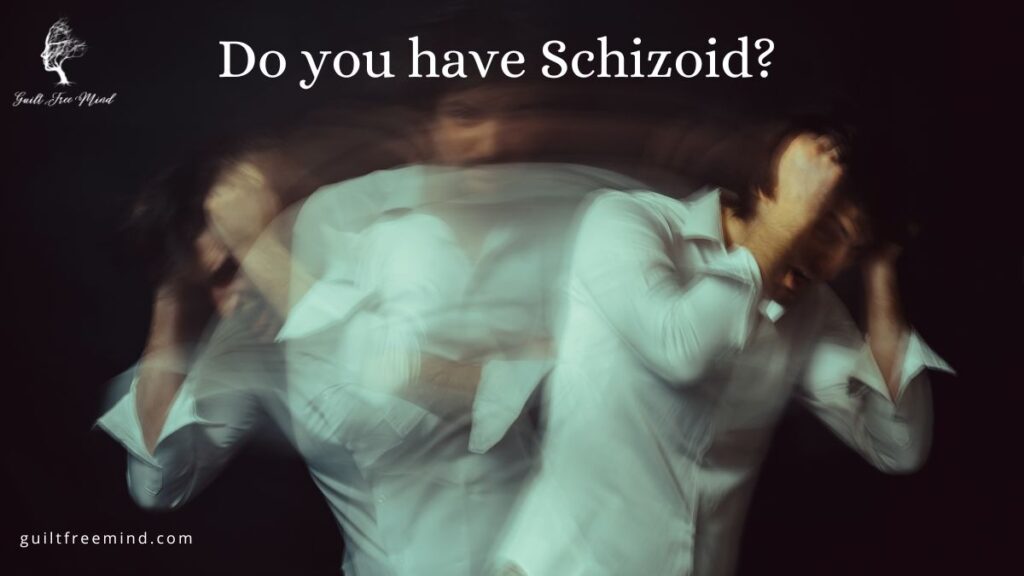
Difference between introvert and a person with schizoid personality disorder
In case of those who are introverts, they will want some time for themselves. However, this is because socializing with other people can be draining for them. Unlike schizoid personality disorder, introvert will not stay away from every relationship. They will have a few friends whom they are close to. However, those with schizoid will only prefer to interact with those who are in their immediate family. They will not have close friends.
Little to no interest in sexual activities.
Since such people find extremely hard to put their faith and trust in others, it is natural that they do not have any interest in sex. Sex requires some form of trust after all. Any form of healthy relationship needs the foundation of trust. Even if you do go to the level of engaging in physical intimacy, with the other person, you may feel disconnected and detached, since there are little to no emotions involved in that period
In most cases, those suffering from schizoid personality disorder would go for:
- Those people who either do not have time to be in a stable relationship or those who already have a partner period
- For a no-strings attached type of relationship or casual sex.
- If the relationship starts to become serious, they will make their escape as soon as possible.
Feeling excited is difficult.
Since those with schizoid personality disorder have spent a lot of time disconnecting themselves emotionally, and physically from other people, they find it harder to get an adrenaline rush in situations where they feel extremely stressed for unsafe. The dissociated behaviour tends to become a reflex in such people. Therefore, you may feel more disconnected and detached. You may feel that your life is like a stream that is just flowing but you have no role in it. Your body may seem like a machine that you are operating. You will go through your duty routine, office, studying, do the house chores et cetera. However, the enjoyment or satisfaction that one faces in their lives will be missing from your life.
You can meet the professional goals that you check for yourself. You can also easily handle the task that you are given at work or school. However, the activities of day-to-day life brings very little to no joy at all to you. Life is always something that may seem very meaningless.
Usually, their number of confidants or friends is very few.
Mostly, people with such a form of personality disorder feel that others are either unsafe or safe. In case you deem the other person as unsafe, you will do your best to avoid being in the company of that person. Since it is very hard for you to trust others, it makes it impossible for you to discuss your deepest, darkest secrets with other people.
However, there is another side effect of this inability to confide in another spirit. Since those suffering from schizoid personality disorder have a blurred sense of self-worth. Their sense of self is not very well defined. They do not understand to negotiate subtle boundaries. Therefore, they are much more likely to be sensitive towards any form of intrusion.

You may notice that you tend to zone out while talking to another person. This is specifically true when you do not connect with the other person on any level. You may also try to avoid being in situations that may require you to engage in an interaction with other people.
- Only talk to those who are in your immediate family like your siblings or parents.
- Bond more with animals and animals, since they give out vibes that are safer than being with people Usually try to meet the needs of connecting to someone via the imaginary relationships in your head.
- Over time, this heightened sensitivity can lead to the person avoiding any form of relationship completely. Alternatively, the person may also have a string of failed relationships in the past.
This does not mean that those who suffer from personality disorder, never have relationships. They may have one or two people who are very important in their life. These would be the people they feel safe with.
You don’t care about others opinions
Since you can hardly connect to other people, you also don’t care what they think about you. You are living an existence that is meaningless to you. Thus, the opinion of others don’t matter
Whether others, show interest in your activities, praise you, criticize you or talk bad behind your back, you remain unaffected. The constant presence of despair and existential dread causes the person to go into depression. This does not relate in any way with a desire to end their life. It simply means that they cannot find a connection to the life that they are living.
You keep yourself shut off from others.
When you have a personality disorder, it does not mean that you do not experience any emotions. It simply means that your feelings of disconnection and attachment do not allow you to display your emotions in a manner that anyone else would do. Whenever situations arise where you start to feel unsafe or stressed, your mind puts up a wall to shield you from those feelings.
Furthermore, experiencing emotions means that you are vulnerable. Sharing your feelings with others means that you are putting your faith in others to be with you during your difficult times. These actions can act as threats to your safety. Therefore, your mind, in order to not risk pain, keeps you away from these feelings. Shutting yourself out is a better option when it comes to protecting yourself.
Since you are constantly guarding your feelings, it is very difficult for you to share them with anyone or bond with another person as a part of a relationship

Schizoid personality disorder and other disorders: overlapping symptoms.
Personality disorders are hard to diagnose. This is because it shows many overlapping symptoms with other forms of mental illnesses. The other personality disorder also shows certain common signs like isolation and social confusion. These factors usually complicate the diagnosis.
Autism spectrum disorder
Autism spectrum disorder is one that mostly affected a persons ability to properly communicate with others and their social skills. At times, this can make a person extremely sensitive to specific stimuli like sound or light. Those with ASD may even try and avoid eye contact with others. They might seem to be lost in an inner world of their own.
Complex post-traumatic stress disorder.
cPTSD occurs when a person has been through repeated and long-term trauma like constant child abuse, sexual assault, war, etc. These people have a very crucial need to isolate themselves from others. They also start to feel detached from their surroundings and their immediate family members.
Other type A personality disorders
One of the personality disorders is paranoid personality disorder. A person with this type of personality disorder does not form relationships because of their constant anger and irrational suspicions towards the other person.
Schizotypal personality disorder.
In this case, the person is primarily afraid of any physical intimacy. Therefore, they avoid getting close to another person in the fear of intimacy. This disorder also includes additional symptoms like confusing communication, and eccentric behaviour.
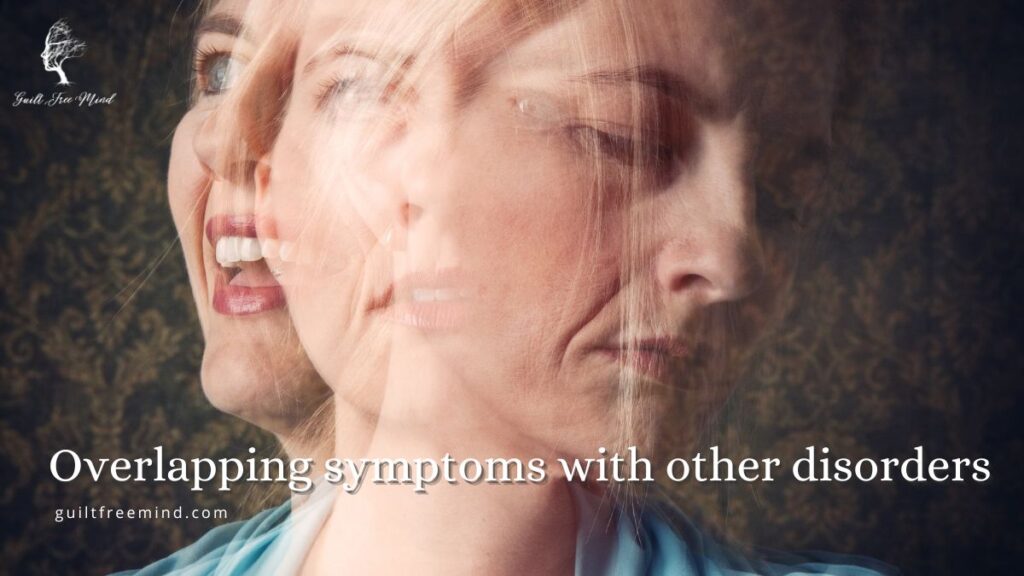
Schizophrenia versus schizoid personality disorder.
A lot of the time, schizoid personality disorder, get confused with schizophrenia. In this section, we will identify how are the two different to each other.
A person who is suffering from schizophrenia experiences a combination of common delusions, hallucinations, and extremely disorganized thinking and behaviour that impairs their daily functioning.
In the case of schizoid personality disorder, there are no hallucinations, delusions or total loss of reality. Furthermore, the problem does not affect their daily functioning. They can go on life as a normal person. They just do not feel a connection to life as a normal person.
Social anxiety disorder vs schizoid personality disorder.
Social anxiety disorder or social phobia is a condition where the person finds it extremely difficult to even walk past other people. They are constantly afraid of what others are thinking about them. In order to cope with this fear, they avoid being a part of any social interaction as much as possible.
Social anxiety disorder is completely different from schizoid personality disorder. People who have schizoid do not care what others think of them. This is because they are constantly disconnected and disinterested in other’s thoughts about them. They have no problems with being in social settings. They just do not like being a part of groups. However, they do not feel connected with others enough to let the judgement of others have an impact on them.
Treatment options for schizoid personality disorder.
Medication.
There is no specific medication that is used for this disorder. However, there are medications that can control the symptoms. It is also been observed that the medicines used to control Schizophrenia symptoms can also help with this personality disorder. Antidepressants and stimulants can also be given to the patients to energise them and help prevent the low mood phases.
Group activities.
Group activity is an amazing way to develop connections with others and bond with other human beings. Sometimes, in these group meetings, patients may also open up and discuss their inability to meet the emotional needs of others.
Therapy
In most cases, those who have schizoid are not open to getting therapy. This is because they do not desire personal connection with anyone. If they go in for psychodynamic therapy, it can help immensely.
Therapy options available for people with schizoid personality disorder.
Family therapy.
In most cases, those with schizoid personality disorder go for treatment under the advisement of their family members. In certain cases, family therapy can be useful. This form of therapy can help family members understand how to deal with the person, which way to act, what behaviour should be avoided, what to do if the person behaves in a certain manner etc.

Cognitive behavioural therapy
Cognitive behavioural therapy is an extremely structured goal-oriented therapeutic format. Usually in this therapy, the psychologist or psychiatrist will ask the patient to have a closer look at their thought patterns and analyse them to understand how their thoughts are having a direct effect on their emotions. In case of those having schizoid personality disorder, the therapist will work with the patients to help them understand the perceptions and expectations that the person has and help them change their thought patterns.
Conclusion
Those with schizoid personality disorder prefer to be isolated. They do not find pleasure in any form of physical interaction and their emotional reaction range is very limited. This disorder generally does not affect a person’s desire to live. However, the overall absence of motivation and a negative viewpoint of people can make it difficult for the person to lead a normal and fulfilling life. It can also boost the risk of suicide in certain severe cases.
Diagnosis of this personality can be difficult since the person tends to isolate themselves. Personal and cultural environment also has a role to play in understanding if the person suffering from this form of behavioural problem.
Even though there are no specific treatments for this disorder, therapies available to manage the symptoms. medicine, group activities, and family therapy can help the person lead a more fulfilling an positive life.
Address your queries
If you have any queries about this blog, post or any other on Guilt Free Mind, feel free to reach out to me. I am live on twitch every day except Wednesdays from 11 AM to 7 PM Indian Standard Time. You can also set up a counselling session with me. For the same, you can reach out to me via the contact form in the singer. If you like watching videos, please subscribe to Guilt free Mind’s YouTube channel. Do not forget, to ring the notification bell. If you wish to stay updated about the new blog posts, please subscribe to the blog. The option is present in the sidebar.
Have you met anyone having schizoid personality disorder? If your answer is yes, you must approach a psychologist or psychiatrist. This mental health problem must never be ignored. It can be very debilitating in the future. Therefore, start on therapy quickly.
See you in find next blog post.
Dr Shruti
Frequently Asked Questions
Yes, schizoid personality disorder is considered to be a mental illness. It is characterized by the inability to form relationships with other people, and marked by emotional detachment and an indifference to social activities or relationships. People with schizoid personality disorder often have difficulty expressing emotional warmth or forming close relationships, even with family members.
The exact cause of schizoid personality disorder is not known, but there is evidence that it may be caused by a combination of biological and environmental factors. Depression or another mental health disorder in the family history may increase the risk, as well as a traumatic event or childhood abuse. Stressful life changes can also trigger the onset of the disorder
Schizoid personality disorder is diagnosed based on a psychological evaluation. This assessment includes a detailed interview about symptoms, behavior patterns, medical history and family history. The healthcare professional conducting the evaluation looks for symptoms that have persisted long enough to indicate a diagnosis of schizoid personality disorder, such as difficulty forming relationships, lack of interest in activities or hobbies, and little to no emotional expression. They may also use diagnostic tests such as the Structured Clinical Interview for DSM-5 (SCID-5) to determine an official diagnosis.

3 Comments
I have been browsing online more than three hours today, yet I never found any interesting article like yours. It is pretty worth enough for me. In my view, if all website owners and bloggers made good content as you did, the internet will be a lot more useful than ever before.
Normally I do not read article on blogs, however I would like to say that this write-up very forced me to try and do so! Your writing style has been amazed me. Thanks, quite great post.
I think you have noted some very interesting points, thanks for the post.